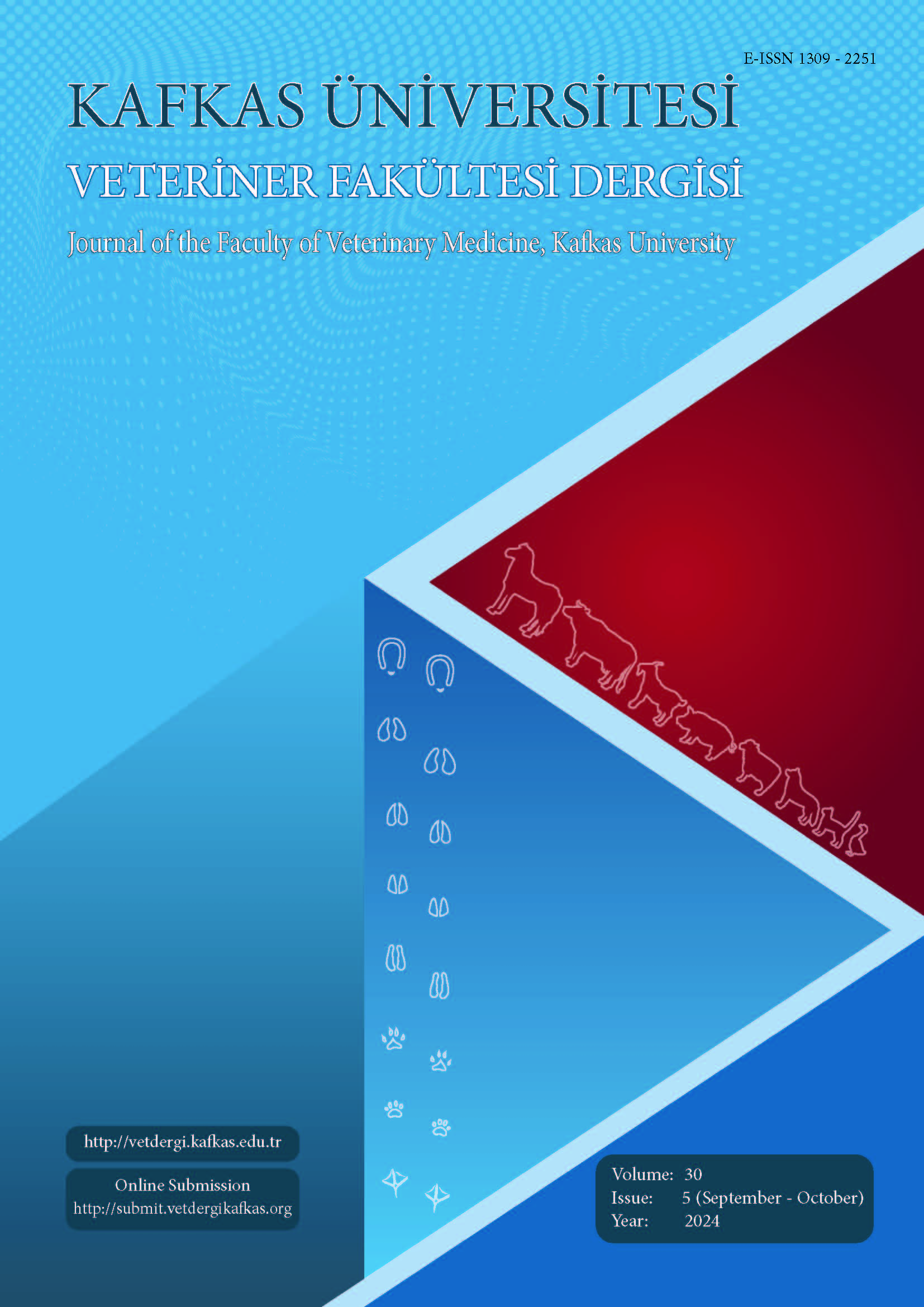
This journal is licensed under a Creative Commons Attribution-NonCommercial 4.0 International License
Kafkas Üniversitesi Veteriner Fakültesi Dergisi
2024 , Vol 30 , Issue 5
Adulticidal, Larvicidal, and Repellent Potential of Ethyl Acetate Extract of Moringa oleifera against Rhipicephalus microplus Cattle Ticks
1University of Agriculture Faisalabad, Faculty of Veterinary Science, Department of Parasitology, Chemotherapy Lab, 38040 Faisalabad, PAKISTAN2King Saud University, College of Science, Department of Zoology, P.O. Box 2455, Riyadh 11451, KINGDOM OF SAUDI ARABIA
3Shantou University Medical College, Department of Pharmacology, Shantou, Guangdong, CHINA DOI : 10.9775/kvfd.2024.32438 The emergence of tick resistance against synthetic and eco-toxic chemical acaricides has stressed the need to find target-specific, non-toxic, and more potent alternatives such as botanicals. The current study was designed to investigate the acaricidal and repellent potential of ethyl acetate extract of Moringa oleifera seeds against Rhipicephalus microplus cattle ticks. Adult immersion test, larval immersion test, and tick climbing repellent assay were carried out to evaluate the acaricidal and repellent potential of M. oleifera extract. Five different concentrations (20, 10, 5, 2.5, and 1.25 %) of the ethyl acetate extract of M. oleifera were prepared to evaluate the acaricidal and repellent potential. Different parameters like adult tick mortality, larval mortality, egg hatchability, inhibition of egg hatchability, oviposition reduction, reproductive index, reproductive efficiency index, tick repellency, and product effectiveness were determined. Ethyl acetate extract of M. oleifera showed 70% adult mortality after 24 h treatment when 20% concentration was used. Similarly, 73% larval tick mortality was observed at 20% concentration. The results also showed the dose-dependent response of ethyl acetate extract of M. oleifera seeds against egg hatchability, inhibition of egg hatchability, oviposition reduction, reproductive index, reproductive efficiency index, and tick repellency, confirming that 20% concentration is effective as an acaricide and repellent against R. microplus. Therefore, the tested extract can be considered a possible candidate for controlling R. microplus in cattle. Keywords : Acaricides, Moringa oleifera, Seed extract, Repellents, Rhipicephalus microplus, Ticks, Cattle










